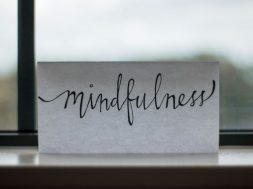By: Akos Balogh
The world came to a screeching halt when Queen Elizabeth died. Few people in history have provoked such sorrow at their passing.
And her funeral was probably the most watched event in human history thus far. I must confess I felt sad (dare I say it, I shed a few tears) when I heard she died. Even though I’ve never met her, or had any contact with her, I felt grief.
And so it got me thinking: why the massive outpouring of grief at her passing? Why has it brought our nation (and the nations of the Commonwealth) to a halt?
The Symbolism of the Crown
While the Queen had no real political power, her role was full of meaningful symbolism that impacted others, including many of us here in Australia.
American writer Andrew Sullivan offers this insight:
“You can make all sorts of solid arguments against a constitutional monarchy—but the point of monarchy is precisely that it is not the fruit of an argument. It is emphatically not an Enlightenment institution. It’s a primordial institution smuggled into a democratic system. It has nothing to do with merit and logic and everything to do with authority and mystery—two deeply human needs our modern world has trouble satisfying without danger.”
He continues:
“The Crown represents something from the ancient past, a logically indefensible but emotionally salient symbol of something called a nation, something that gives its members meaning and happiness.”
Authority, mystery, meaning and happiness: these, Sullivan argues, are what the Crown provides us, Her Majesty’s subjects. And with her passing, many feel we’ve lost some of these things.
Hence the grief.
But I wonder if another thing the Crown provides is a sense of stability: a feeling that no matter how chaotic our world, there is (or was!) an adult at the helm, providing support and guidance to us as we make our way through life’s ups and downs.
The Death of The Queen and The Passing Of Stability
Now that the Queen has gone, we’ll no longer hear her calm, commanding, and reassuring tones throughout the year.
Hers was a voice that brought perspective to difficult times. Her words were a balm to tired, troubled souls desperate for strength during COVID lockdowns. And each Christmas, she helped bring meaning to an increasingly troubled world as she talked about what mattered in life: family, relationships, and for her, faith. She was like a wise matriarch, a welcome presence at family gatherings who helped de-escalate tension by her mere presence and select words.
But all that has now passed.
And our collective grief shows how much we valued her – and the semblance of stability she brought to our lives. It wasn’t the hard stability of a strong government so much as the soft stability of a soothing presence.
And this points to something about our human condition: whether a Royal fan or not, we all appreciate – we all need – a sense of stability if we’re to avoid emotional vertigo in these chaotic times.
Where should we look for stability?
Christians can thank God for institutions like the Crown that have helped provide that sense of stability.
The Queen gave us a temporary sense of comfort that soothed us in troubled times. But, in the end, we all need more than temporary comfort. Monarchs might reign for 70 years. But eventually, they pass on. Death has the final say over our mortal lives.
And as we’re left with our sorrow, many will ask: where can we look to for stability?
For some, the answer will be the things around them: family, work, sport – their day-to-day routines. For others who have struggled in these challenging times, their answer might be Netflix or the bottom of a bottle. And, of course, many will look to the new King– King Charles III – to resurrect that sense of stability given by Elizabeth II.
But again, all these solutions to our need for stability are, well, temporary.
The Royal Who Provides Real Stability
And yet, for those with eyes to see, there is a King that provides the stability we all crave.
As Queen Elizabeth herself testified in one of her Christmas messages:
“Although we are capable of great acts of kindness, history teaches us that we sometimes need saving from ourselves – from our recklessness or our greed. God sent into the world a unique person – neither a philosopher nor a general, important though they are, but a Saviour, with the power to forgive.”
The Saviour, the King she’s referring to, is, of course, Jesus.
The one who came into our world not adorned with purple robes and a royal entourage, but in a filthy manger, with lowly shepherds paying their respects. The one who lived not in palaces but in the dusty countryside of Judea. And the one who came not to live extravagantly but to die an ignoble death on a Roman Cross, for us, his enemies.
This King came so that we could join his Kingdom, indeed his own Royal family.
And it’s a Kingdom that nothing in this world can destroy: Not natural disaster. Not war. Not economic calamity. Not even death. That’s the Kingdom we’re invited to join.
That’s the King we’re commanded to worship.
Queen Elisabeth brought stability, but death took her from us. King Jesus came and died. But he returned to life. And brings stability – both now and for eternity – to all who look to him as Saviour and King.
“Therefore let us be grateful for receiving a kingdom that cannot be shaken, and thus let us offer to God acceptable worship, with reverence and awe.” (Heb 12:28)
Article supplied with thanks to Akos Balogh.
About the Author: Akos is the Executive Director of the Gospel Coalition Australia. He has a Masters in Theology and is a trained Combat and Aerospace Engineer.
Feature image: Photo by Pro Church Media on Unsplash









